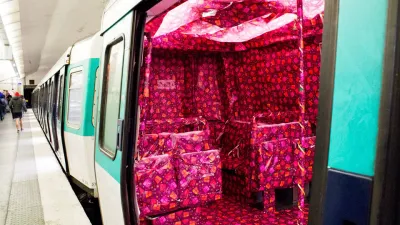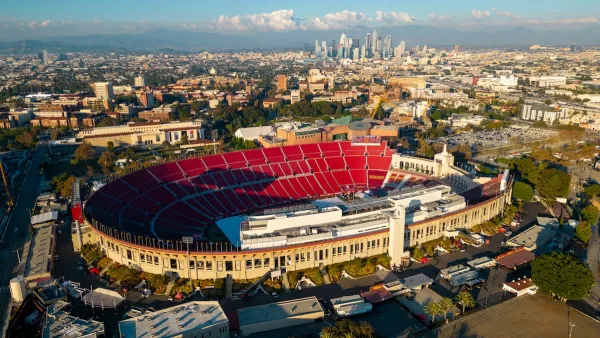A pair of recent articles examine what it’s like to use public transit every day, year after year. One examines the mechanics of on-time delivery and service—the other, the unwritten rules of ridership.

The first article, by Matt Johnson, represents a near-Herculean effort to compile a database of the author’s experiences on the Washinton D.C. Metro—the trains, their timeliness, and other anecdotal information.
“In 2013, I took 866 rides and experienced 15 delays, which means that 1.73% of my rides were delayed. In 2014, so far, I've taken 134 rides and experienced 11 delays, which means that 8.21% of my rides were delayed. That's a significant increase.”
The second article, by Nicolei Gupit, describes insights gleaned from riding the Metro bus system in Los Angeles since 1998.
“I learned by heart the cadence of passing streets as I rode the buses plying Vermont: Sunset, Fountain, Santa Monica, Melrose, Beverly, First, Third, Sixth, Wilshire. I created my own map of L.A. by surveying who got on and off the bus at which stops. While I heard mostly Spanish and Armenian spoken around East Hollywood, I would hear mostly Korean, Chinese, or Tagalog when passing neighboring areas heading south and west from home.”
FULL STORY: I tracked every Metro trip I made for two years, and here's what I found

Analysis: Cybertruck Fatality Rate Far Exceeds That of Ford Pinto
The Tesla Cybertruck was recalled seven times last year.

National Parks Layoffs Will Cause Communities to Lose Billions
Thousands of essential park workers were laid off this week, just before the busy spring break season.

Retro-silient?: America’s First “Eco-burb,” The Woodlands Turns 50
A master-planned community north of Houston offers lessons on green infrastructure and resilient design, but falls short of its founder’s lofty affordability and walkability goals.

Test News Post 1
This is a summary

Analysis: Cybertruck Fatality Rate Far Exceeds That of Ford Pinto
The Tesla Cybertruck was recalled seven times last year.

Test News Headline 46
Test for the image on the front page.
Urban Design for Planners 1: Software Tools
This six-course series explores essential urban design concepts using open source software and equips planners with the tools they need to participate fully in the urban design process.
Planning for Universal Design
Learn the tools for implementing Universal Design in planning regulations.
EMC Planning Group, Inc.
Planetizen
Planetizen
Mpact (formerly Rail~Volution)
Great Falls Development Authority, Inc.
HUDs Office of Policy Development and Research
NYU Wagner Graduate School of Public Service



























